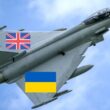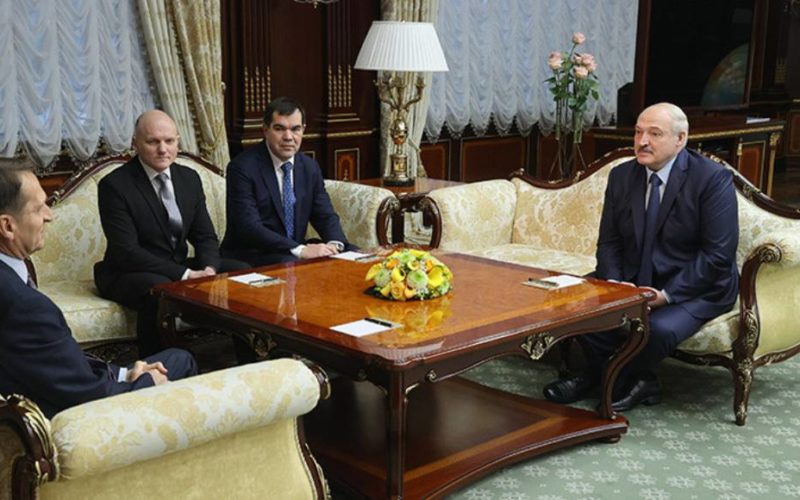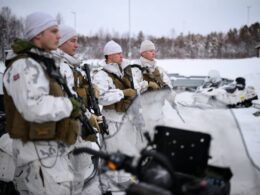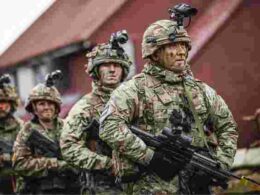Before Russia’s full-scale invasion of Ukraine on February 24, the Kremlin didn’t plan to involve “Wagner” mercenaries, like other Private Military Companies (PMC). Putin’s war operation targeted a blitzkrieg.
The maximum that the Russian generals talked about was two weeks of fighting. However, the war did not go according to Moscow’s plan, and already in March, it was decided to involve Wagner mercenaries as assault units. However, due to a large number of commitments in Syria and the countries of Africa, it was impossible to deploy them quickly.
Then, according to some mercenaries, Wagner’s PMC recruiters printed blacklists of excluded fighters. According to the assessment of a former unit commander in “Wagner” in 2015, such lists could have gathered from 500 to a thousand names. They recruited Russians into Wagner units, primarily those who had participated in the war in 2014-2015.
Creation of mercenary units in Russia
It was from these profiles that mercenary units were initially formed, and then sent to units of the Russian army or the “army of the DPR.” But almost from the beginning, it became clear that this is a “road to nowhere.”
For example, let’s recall the case near Mariupol when such fighters, for some reason, lit a fire and were hit by their artillery.
Therefore, due to the heavy losses, “Wagner” began to return its mercenaries from Africa and throw them into battle. The Russian private military company then started recruiting all the mercenaries, ready to fight against Ukraine.
The Russian BBC reported this regarding a source among mercenaries and announcements in public places where militants were previously recruited. So, at the recruitment point in Molkino, near the Russian city of Krasnodar, they “recruit everyone in a row.”
One of the mercenaries, who was recently near the Russian Federation and Ukraine border, and has now returned home, told journalists about this.
“It’s those who are with jambs. It’s those who are on blacklists,” added the Russian mercenary. He clarified that formally it is not “Wagner” PVC but assembled units with various other names, “all sorts of rubbish.”
Wagner mercenaries deployment
According to the Russian BBC service, the recruitment of mercenaries started on February 28, 2022. Almost all previous restrictions have been removed for “job seekers.” In particular, until a few months ago, private military companies did not hire anyone except Russians born within the Russian Federation’s borders before 2014.
However, since February, residents of the occupied territories of Donbas, residents of the occupied Crimea, convicts, and foreigners have been invited to the recruitment points.
Also, unpaid debts and the absence of a criminal record certificate or a foreign passport ceased to be an obstacle to recruitment for the war.
Cheap “Wagner” fighters
“Wagnerians” are often cheaper to maintain than any Russian soldiers. During their service, they do not disturb the authorities with video appeals, and the death of thousands of “Wagnerians” has no significant meaning for Russian society.
According to Russian researchers, since the beginning of the year, the probable number of prisoners recruited for the war in the Russian Federation is up to 23,000 people, and recruitment continues. Thus, “Wagner” does not yet have a shortage of personnel, despite impressively high losses.
There are also purely military reasons for Wagner’s effectiveness, as the management structure and application tactics are currently the only effective ones for ill-trained mobilized troops, which make up most of the Russian ground forces.
“Wagner” can afford any high losses of the variable composition of the assault groups without any consequences, and the prisoners still manage to be recruited in significant numbers. Failures do not reduce units’ combat effectiveness, as commanders and staff of units, weapons operators, intelligence, and control remain a permanent composition that is not expended in assault actions and retains specialization.
“Wagner” buys drones for combat operations
According to sources in intelligence, representatives of PMC “Wagner” negotiated with representatives of Iranian companies producing drones in the city of Isfagan.
According to the results, an agreement was reached on the production of 70 units of “Shahed-131” kamikaze drones by the end of February 2023 by “SAI” (“Shahid Aviation Industries”) for the needs of “Wagner” PMC.
Also, in January 2023, 15 fighters of the “Wagner” PMC will undergo a two-week training course for UAV operators of this type.
The company “HESA” will produce one “Shahed-129” reconnaissance-strike UAV by April 2023 and refused to sell one “Shahed-149 Gaza” heavy reconnaissance-strike UAV.
Special services in the occupied territories of Ukraine
Russian special services highly value partnership relations with their Belarusian counterparts. Director of Russia’s Foreign Intelligence Service (SSR) Serhii Naryshkin said following a joint meeting with the State Security Committee (KGB) of Belarus, Belta reported.
Among the “Wagnerians,” there are also “additional informants for Belarus.” One of the 33 alleged Wagner militants has been identified as an agent of the Belarus special services.
This was announced by the head of the Investigative Commission (ICC) of the Verkhovna Rada in investigating possible illegal actions by representatives of state authorities against the sovereignty of Ukraine.
Therefore, the special services and the regime work for the same goal. Current facts indicate the participation of joint units, special services, or private military companies in hostilities on the territory of Ukraine.
Belarus is always in cooperation with Russia
It is known that Belarus continues measures to strengthen its positions on the border with Ukraine with personnel and prepares Belarusian police officers for border service.
Undisclosed sources in Ukrainian intelligence indicate that Belarus is creating new units, the functions of this unit will be surveillance, countering UAVs, canine service, and the availability of appropriate weapons, including armored vehicles. Those who have already served in the special forces will perform in the unit.
From the beginning of the war, Belarus cooperated with Russia but publicly denied it. Frequent negotiations and intercepted conversations of the presidents of both countries are a fact of this.
It is not surprising that the special services of Belarus and Russia are cooperating and waging war in Europe. Shortly, the president of Belarus will no longer be able to deny his part in the work of this war.








